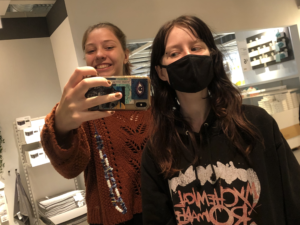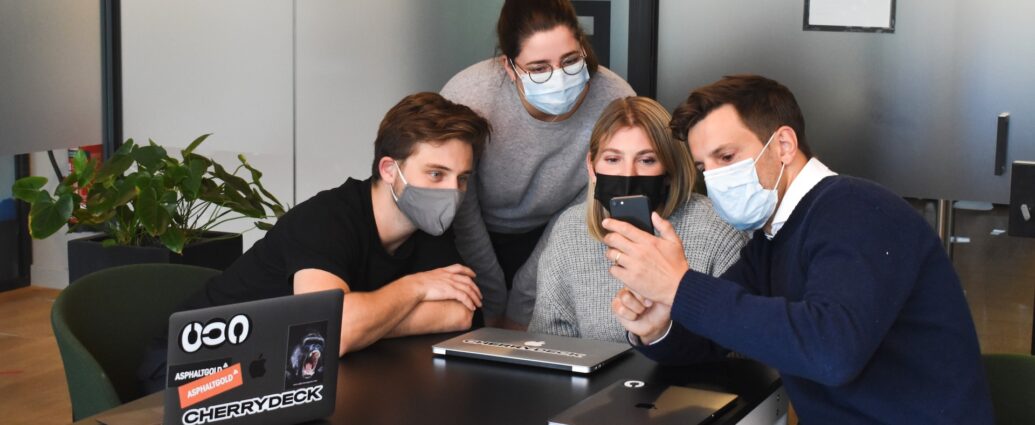Seven Standen
The COVID-19 outbreak began almost four years ago, but we are still living in the midst of the pandemic. Pretending otherwise, and refusing to take appropriate precautions against the virus, is outright ableism.
During the COVID-19 pandemic, people learned a lot of new things — from working remotely and baking banana bread to navigating an entirely new, alien world. However, the most significant lesson that I learnt was the animosity of the general public towards disabled people. And, as the majority pretend that life has ‘returned to normal’, this lesson is one I’ve been forced to learn again and again.
COVID-19 isn’t ‘over’
Many have accepted that the pandemic is over and we’ve emerged from the other side, a little battered and bruised but otherwise okay. But, those of us who are ‘COVID-conscious’ know that infections, long-term effects and deaths still occur on a daily basis. We also know that it’s important to shield ourselves and others from the risks.
Unfortunately, the number of people taking precautions is incredibly small and disproportionately disabled.
While I wore a mask longer than most of my able peers, I am guilty of accepting the ‘return to normality’ propaganda after COVID deaths ‘dropped’. Masking and social distancing had become a thing of the past, and mass gatherings were once again the norm. It was easy to go with the flow.
My fourth birthday in isolation today. So much of my life in the pandemic is about saying 'I'm still here.' I'm still here, on year four of shielding. I'm still here, as virtual events vanish and isolation deepens. I'm still here four years later, still exhausted, still shielding
— Karl Knights (@Inadarkwood) July 8, 2023
In May 2023, I started wearing a face mask again. As I delved into disability activism, I came across numerous social media posts by other disabled individuals about the importance of wearing a mask. Masks protect society’s vulnerable from COVID-19 and other airborne diseases.
I’m shameful that I stopped wearing a mask in the first place. While I hate admitting to my mistakes, I know it was the wrong decision. Now, I listen to the voices of those who are more vulnerable and possess more knowledge of the risks, than myself.
“Refusing to wear a face mask in 2023 is an inherently ableist decision”
Attempts to educate the general public about the ongoing risks of COVID-19, as well as the importance of continuing to wear a mask, are frequently met with abuse. People don’t like being told what to do, especially if it means being told they’re wrong. However, refusing to wear a face mask in 2023 is an inherently ableist decision.
Ableism exposed by the pandemic
It isn’t the first time that COVID-19 has exposed the underlying ableism which weaves its way through society.
In many places, the initial response to the virus was not to worry — only the most vulnerable would be affected by it. Many people used this as a justification to avoid wearing masks, social distancing, and to continue attending mass gatherings. They wrote COVID-19 off because only ‘disabled and elderly people’ would be adversely affected. This was the earliest example of ableism in the pandemic, but it still persists today.
Despite the ongoing vulnerability of many to COVID-19 and the emergence of new strains, the percentage of people who continue to wear masks in 2023 is incredibly low. Cries from the disabled community to take precautions are ignored and even laughed at.

In the eyes of the general public, our deaths matter less than an able person’s. Although this idea might seem shocking to the majority of readers, it isn’t new. Any disabled person will recognise this rhetoric, as it underpins the political and legal ableism we face on a daily basis.
Abortions are deemed acceptable when a child will be born disabled, euthanasia is justified if someone is disabled, and the resuscitation of disabled people can be ruled against, without their consent. When people refuse vaccinations “in case they cause disabilities”, they’d rather risk severe illness or death than be like us.
While the disdain for disabled people is shocking, we’re grimly familiar with it.
I’m not perfect, even though I’m wearing a mask
Already, I’ve admitted that I stopped wearing a mask in 2021 after I mistakenly believed that the COVID-19 pandemic was over. This isn’t the only mistake I’ve made.
“When it comes to taking COVID precautions, I always compare it to being environmentally friendly — I do the best I can, when I can”
Recognising the importance of wearing a mask doesn’t make me a saint. I’ve often forgotten to bring a mask with me —anyone else with ADHD will know the struggle of remembering belongings — and entered public places without them. I also rarely wear a mask outside, even though COVID can be transmitted in open spaces.
hot people are covid-conscious ❤️🔥 https://t.co/qiOHsSx0Nt pic.twitter.com/KMFbaNc5Hr
— Seven (they/them) (@seven_standen) June 11, 2023
When it comes to taking COVID-19 precautions, I always compare it to being environmentally friendly — I do the best I can, wherever I can. I make an effort to wear a mask indoors, on public transport, and in crowded places, but I don’t hold myself to impossibly high standards. Being autistic makes it challenging to wear a mask in the first place, so simply wearing one is an accomplishment. Not to mention, I’m doing more than most people.
I don’t lecture people on the importance of wearing masks in public. It’s not the most effective way to encourage mask-wearing. Instead, I lead by example. I also remind others about the importance of covering their faces, for a variety of reasons. It’s not just about COVID-19, but also about protecting ourselves from other illnesses and air pollution.
You should still be wearing a mask
It’s understandable that people want to return to their lifestyles prior to the COVID-19 pandemic. But it is irresponsible to pretend that the virus no longer affects people. Instead, to protect the disabled community and others, it’s necessary to accept a ‘new normal’.
“A simple cold can be seriously damaging to the health of disabled, elderly, or otherwise vulnerable persons”
Wearing a mask in public, especially if you’re ill, as well as respecting personal space and washing your hands regularly should become commonplace. In plenty of other countries, wearing a mask has been normal for years.
Even if COVID-19 does eventually disappear, there are plenty of other contagious illnesses that we should be shielding from. A simple cold can be seriously damaging to the health of disabled, elderly, or otherwise vulnerable persons. You may even be a vulnerable person, without realising.
Just like in the initial stages of the pandemic, everybody has a responsibility to mask up and protect the most vulnerable members of society. Disregarding the continued existence of COVID-19 is a privilege that only the able-bodied can afford. And, if you keep doing so, you cannot claim to be an ally of the disabled community.
READ NEXT
-
#METOO IN TAIWAN: ‘IF WE KEEP OUR VOICES LOUD, THE MOVEMENT WILL NEVER DIE’
-
CARLA FOSTER CASE: WHY UK ABORTION LAWS REQUIRE DRASTIC REFORM
-
MEDICAL MISOGYNY AND LONG COVID: A BROKEN SYSTEM PREVAILS
Featured image courtesy of Cherrydeck on Unsplash. No changes have been made to this image. Image license found here.

